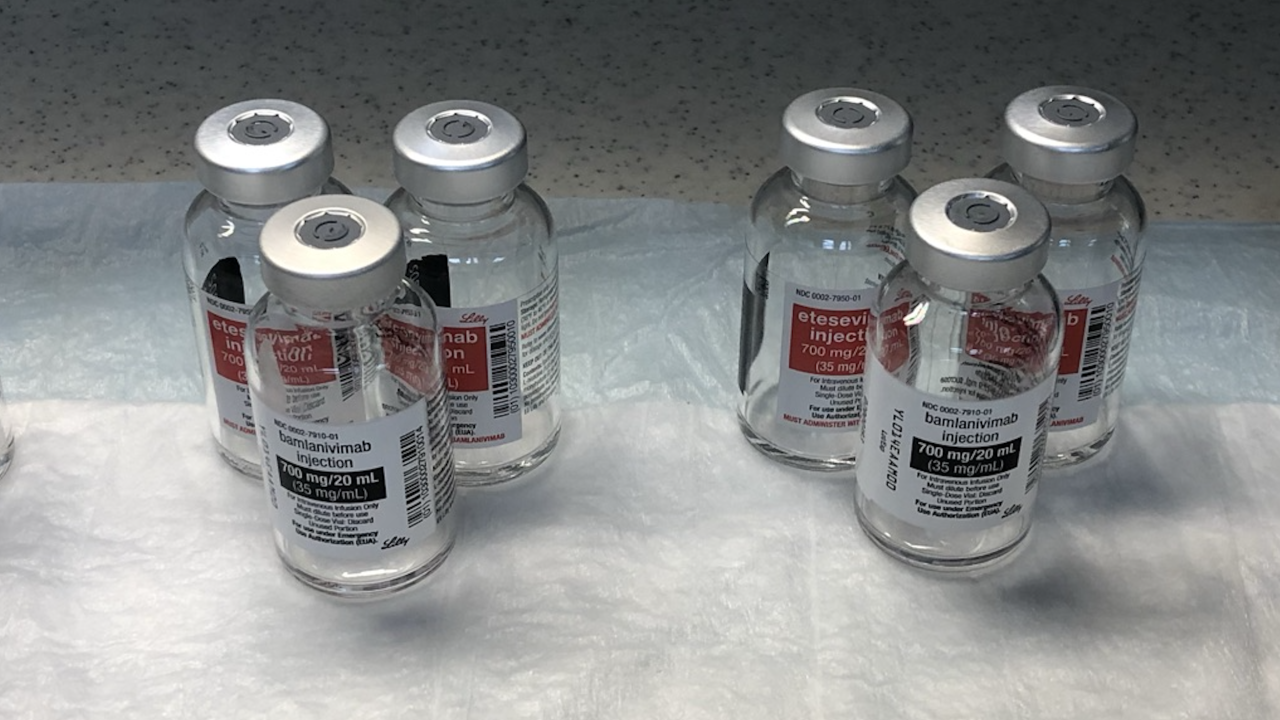IDAHO — The national vaccination rate is nearly 66% percent, meaning around 187 million Americans are fully vaccinated against COVID-19.
Health officials say monoclonal antibodies are useful but are not a replacement for the vaccine, which proves to have more protection against the virus.
Monoclonal antibodies are antibodies someone can get that are used after someone gets a positive COVID-19 test to help reduce the chances of hospitalization or death.
"For those who were exposed to the virus, who might be in a sensitive position like healthcare providers, post-exposure prophylaxis with the monoclonal antibodies may be helpful to prevent serious infection and then those who are in certain risk categories who have been developing symptoms and are testing positive may also be candidates for the monoclonal antibodies,” Regence Executive Director Dr. Amy Khan said.
Related: Do you need a vaccine if you had COVID-19? What health experts want people to know.
They last for nearly 90 days and in some cases can reduce hospitalizations by almost 85%, post-exposure.
Why monoclonal antibodies are not a substitute for COVID-19 vaccines: https://t.co/nl1qZZZM7U
— ABC News (@ABC) October 15, 2021
Monoclonal antibodies are being used in Idaho, but officials say they provide less protection than a vaccine and for a shorter amount of time but could help reduce the strain on health systems.
Related: Hospital leaders discuss Crisis Standards of Care in Idaho
“This certainly, isn’t going to get us out of this pandemic, but it is going to hopefully help take some pressure off the hospitals and help keep some Idahoans healthier and safer and not in the hospital even if they do come down with COVID,” State Epidemiologist Christine Hahn said.
Northern Idaho has continued to see an increase in monoclonal antibody use and over 100 patients have been treated since last week. In the Treasure Valley, there are providers offering treatment but there is not a state-funded site in this area yet.
Idaho is still in Crisis Standards of Care as hospitals are continuing to feel the strain on their resources and capacity due to the number of patients coming in with COVID-19 and other illnesses.
Idaho appears to be in a downward trend for percent positivity of COVID-19.
— DHW (@IDHW) October 14, 2021
Statewide PCR percent positivity decreased last week from 14.4% to 13.2%. In four weeks our rate has decreased by 4.1%. Details under the Laboratory Testing tab at https://t.co/rfk8AiWPKE pic.twitter.com/zfIvsT9Fcg
Since the start of the pandemic, over 270,000 Idahoans have contracted COVID-19 — including almost 2,000 new positive and confirmed cases reported to the state Thursday and 30 new deaths.
The Idaho Department of Health and Welfare is reporting a small downward trend in percent positivity across the state as it's decreased by nearly 4% percent in four weeks.
Idaho still sits among the states with the lowest vaccination rate. Roughly 54% of Idaho's population ages 12 and up is fully vaccinated.



